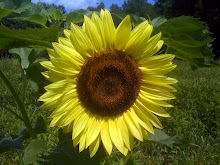Community Supported Agriculture (CSA) is a partnership between farmers and the community. Subscribers purchase a "share" in the farm's harvest. Each week, shareholders receive a
freshly picked portion of each crop. Shareholders in the Sun Valley Farm CSA pick up their shares at the farm on the banks of the Ramapo River in Mahwah.
freshly picked portion of each crop. Shareholders in the Sun Valley Farm CSA pick up their shares at the farm on the banks of the Ramapo River in Mahwah.
because they receive fresh, healthy, delicious food and learn about the food system that sustains them. The cost is lower than at a farm stand or market.
CSA is good for small farmers . . .
because the shares sold provide a guaranteed market for their produce. Receiving payment in the spring helps farmers when they have the most expenses. Seasonal risks—and benefits— are shared by the community instead of being shouldered solely by the farmers.
because the shares sold provide a guaranteed market for their produce. Receiving payment in the spring helps farmers when they have the most expenses. Seasonal risks—and benefits— are shared by the community instead of being shouldered solely by the farmers.
CSA is good for the environment . . .
because it dramatically reduces the amount of energy used in transportation, climate control and packaging. All food grown for the Sun Valley Farm CSA is certified organic, so no harmful chemicals are released into the water, the air, the soil, or your diet.
because it dramatically reduces the amount of energy used in transportation, climate control and packaging. All food grown for the Sun Valley Farm CSA is certified organic, so no harmful chemicals are released into the water, the air, the soil, or your diet.
CSA is good for communities . . .
because food dollars stay in the local economy. Open space is preserved. And people come together with their environment and their neighbors when they come to the farm to retrieve their share.
because food dollars stay in the local economy. Open space is preserved. And people come together with their environment and their neighbors when they come to the farm to retrieve their share.
What's in a Share?
Each share is intended to fulfill the weekly vegetable needs of a family of four or two vegetarian adults. However, every household is different. Many families find that the shares more than fill their needs, and choose to split their subscription with another household. Others
enjoy it all and augment their share with purchases elsewhere.
enjoy it all and augment their share with purchases elsewhere.
Our minimum 20-week season means that each week's share costs $30.00 or less. Shares start humbly in June, but quickly swell as the season continues. Most weeks the price of purchasing the same vegetables at an organic farm stand or market would far exceed the price of your share.
The seasonable variables of farming (weather, pests, disease) will affect each year's particular harvest. The great variety of crops ensures an ample supply of delicious food each week; but returning shareholders will note, and learn from, the differences from year to year. Shareholders invest in the CSA program, partnering with the farmers in the risks and many benefits inherent in farming.
Each week your pre-packed share will await you in a shaded pick-up area. You will receive an emailed newsletter detailing your share's contents, and including farm news and recipe ideas. You are welcome to linger at the farm to enjoy the view and learn more about how your food is produced.


.jpg)